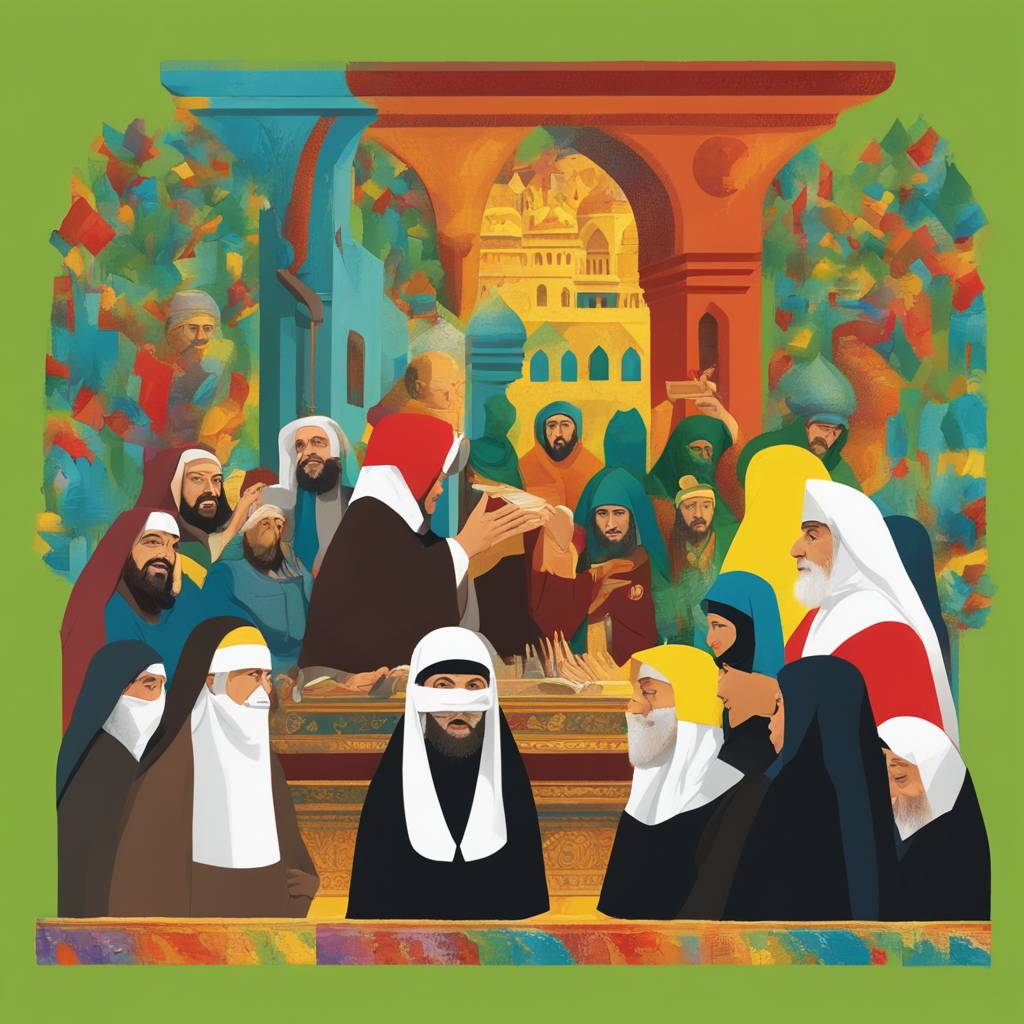Lebanon is a country steeped in religious and political complexities, with various factions supporting or opposing the actions of groups such as Hezbollah, especially amidst ongoing clashes with Israel at the border. The recent video of nun Maya Ziadeh asking her students to pray for the men of the resistance, referring to Hezbollah fighters, sparked controversy and debate regarding the group’s role and influence in the country. Ziadeh’s comments led to accusations of brainwashing and political indoctrination, highlighting the deep-rooted divisions and differing opinions on Hezbollah’s weapons and their impact on Lebanon.
The political landscape in Lebanon is characterized by a delicate balance among different religious groups, with each holding specific roles within the government. However, Hezbollah’s stronghold lies within the Shiite community, causing tensions with Christians and Sunnis who view the group as a threat to the country’s stability. Ziadeh’s plea for prayer for Hezbollah fighters drew criticism from anti-Hezbollah activists and Christian figures, while others, including leaders from Hezbollah’s Christian ally, praised her for upholding religious teachings.
Hezbollah’s involvement in cross-border clashes with Israel has raised concerns about Lebanon’s potential involvement in a broader conflict and its impact on the already crisis-hit country. Critics argue that Hezbollah’s unilateral decisions regarding warfare threaten Lebanon’s sovereignty and involve the population in decisions without their representatives’ consent. Despite internal opposition to Hezbollah’s actions, some Lebanese Shiites support the group for its defense against Israeli aggression and view its military actions as necessary to protect Lebanon’s borders.
The ongoing fighting along the border has displaced civilians, caused casualties, and resulted in widespread damage in towns and villages in both Lebanon and Israel. While some Sunni Muslims have historically opposed Hezbollah’s weapons, the atrocities committed by Israel against Palestinians have created temporary alliances between Sunni communities and Hezbollah. As Lebanon grapples with economic turmoil and fears of prolonged conflict, voices from across sectarian lines express reluctance towards all-out war, emphasizing the need for stability and peace in the region.
The situation has also prompted reflections and isolation for figures like Ziadeh, who faced backlash over her comments. Schools in Lebanon navigate the sensitive balance between freedom of expression and potential controversial topics during class hours, aiming to avoid disputes among students, parents, and the wider community. The recent events shed light on the complexities of Lebanon’s political and religious dynamics, with ongoing debates and disagreements over Hezbollah’s role and influence shaping the country’s future amidst external conflicts and internal challenges. Despite the divisions, calls for unity, peace, and stability resonate across different sectors of Lebanese society, offering hope for a resolution to the ongoing tensions.













